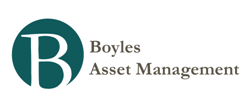Icelandic Anger Brings Debt Forgiveness in Best Recovery Story
Icelanders who pelted parliament with rocks in 2009 demanding their leaders and bankers answer for the country’s economic and financial collapse are reaping the benefits of their anger.
Since the end of 2008, the island’s banks have forgiven loans equivalent to 13 percent of gross domestic product, easing the debt burdens of more than a quarter of the population, according to a report published this month by the Icelandic Financial Services Association.
“You could safely say that Iceland holds the world record in household debt relief,” said Lars Christensen, chief emerging markets economist at Danske Bank A/S in Copenhagen. “Iceland followed the textbook example of what is required in a crisis. Any economist would agree with that.”
The island’s steps to resurrect itself since 2008, when its banks defaulted on $85 billion, are proving effective. Iceland’s economy will this year outgrow the euro area and the developed world on average, the Organization for Economic Cooperation and Development estimates. It costs about the same to insure against an Icelandic default as it does to guard against a credit event in Belgium. Most polls now show Icelanders don’t want to join the European Union, where the debt crisis is in its third year.
The island’s households were helped by an agreement between the government and the banks, which are still partly controlled by the state, to forgive debt exceeding 110 percent of home values. On top of that, a Supreme Court ruling in June 2010 found loans indexed to foreign currencies were illegal, meaning households no longer need to cover krona losses.
…
Legal Aftermath
Iceland’s special prosecutor has said it may indict as many as 90 people, while more than 200, including the former chief executives at the three biggest banks, face criminal charges.
Larus Welding, the former CEO of Glitnir Bank hf, once Iceland’s second biggest, was indicted in December for granting illegal loans and is now waiting to stand trial. The former CEO of Landsbanki Islands hf, Sigurjon Arnason, has endured stints of solitary confinement as his criminal investigation continues.
That compares with the U.S., where no top bank executives have faced criminal prosecution for their roles in the subprime mortgage meltdown.
- Deleveraging, What Deleveraging? - The 16th Geneva Report On The World Economy
Link to report: Deleveraging, What Deleveraging? It is widely accepted that high levels of debt (of various forms) have played a central role in the 2008-09 global financial crisis, the 2010-12 euro crisis and many previous crisis episodes. The adverse...
- John Mauldin: You Can’t Be Serious
I admit to being surprised by Cyprus. Oh, not the banking crisis or the sovereign debt crisis or the fact that its banks were eight times larger than the country itself or even the fact that the banks were bloated with Greek debt that had been written...
- Secret Fed Loans Gave Banks $13 Billion Undisclosed To Congress
Bernanke put out a response to this article, and then Bloomberg put out a reply to that response, standing by their reporting (HERE). As Whitney Tilson described it: "Here’s the first [article], by Bloomberg, which reveals that during the financial...
- Annaly Salvos: The Camel’s Back
Ireland’s rating downgrade by Standard & Poor's on August 24 and the related news of its struggling millstone, Anglo Irish Bank, bring our attention back to the ongoing challenges facing sovereign entities in the postdiluvian financial world...
- Hussman Weekly Market Comment: Extend And Pretend
Regardless of whether the U.S. banking system would not presently be able to meet its liabilities with its assets, there is another question: assuming that banks are allowed to extend and pretend for a long enough period of time, will they ultimately...

